Dave Crader reviews the fundamentals of Search Engine Optimization (SEO). He will explain both the on-site and the off-site factors that contribute to an SEO campaign as well as some tips and best practices to consider. If you have any questions or feedback please leave a comment below.
What is search engine optimization, and why is it important? Well, search engine optimization or SEO can be divided into two categories. On-site SEO, and off-site SEO. Every SEO campaign should start with the on-site SEO to make sure your website is crawlable in search engines. So on-site SEO should be the beginning of your search engine optimization efforts. By doing this, by making sure that your on-site optimization is correct, you're going to be able to make sure that search engine spiders can actually view and read your content.
Now, search engine spiders are what search engines like Google and Bing - it's what they use to find the content on your website, and figure out what it's about. If search engines can't read your content, then it’s not going to know what it's about, and it's not going to be able to show it in search results.
So, you also want to register with search engine webmaster tools and analytic tools. Google and Bing both have these different tools that will help you identify errors like these so that you can fix them. They want to index your site, but if you have these types of things going on, they can't. So they offer these tools to help you identify them and fix them.
So duplicate content often happens on your site without you even really knowing about it. One common example is, say you website has some print friendly view pages on it. Well, what that does is creates two pages of the identical information. Now, say you have a website of 100 pages. You're going to have 200 pages of essentially the same thing, and that's going to confuse search engines. They're not going to know which page is the page that you want to show up in their search results. You don't want to litter their search results with a bunch of useless pages, so you want to fix these duplicate content issues and tell search engines which page you prefer to show in the search results.
So all these different roadblocks can create a bad user experience, and Google wants its users to have a good experience when people click on the links on its search results. So that's going to help greatly with your search engine optimization efforts is by creating a well-designed website with clean coding, efficient coding. It's going to create a better user experience, and thus, search engines are going to like your site more.
All right, so after all these roadblocks are taken care of, we want to look at your actual page content and do some market research, keyword research, and figure out what your customers are typing into the search fields, and figuring out what they're searching for to find your products and services. So once we figure out the phrases they're typing in, then we can put these keywords onto your website so that it'll be more likely that they'll show up on search engines for those keywords.
All right, so after all this stuff is complete, you want to look into creating great content, and possibly a blog to put that content on. What this is going to do is create fresh content for search engines to index with their spiders and that's going to help with your overall search engine optimization efforts. But it's also going to create more topics for search engines to show your website for.
So a website with only five pages that only has so much opportunity to come up for different keywords here. But a website with 20, 30 pages, it can come up for a wide variety of different keywords. So it's important to continuously make new content and make quality content that your customers actually want to read.
So in summary, all this stuff is very important. It's going to lay the foundation for your search engine optimization campaign. But it's not the whole piece of the pie here. It's only 20% to 40%. Search engines are much more evolved nowadays and they don't just rely on this one signal. You can't just throw some keywords on a page and expect it to do all the work for you. It's just not that easy.
Okay. So now that I've explained the 20% to 40% of the pie, I'd like to go over the second part of SEO, which is the off-site optimization, and this is going to be about 40% to 60% of the overall efforts. In this section, we'll be going over obtaining backlinks and what backlinks actually are, and obtaining social media shares for your website.
So there are many ways to get links and get these votes for your website. One very common way is a press release. It often costs $200, $300 to get a press release posted, but in exchange for that, you can get a link for your website and get more exposure for it. Now, Google will say, "Oh, well company is spending some money. They want to make sure that their customers can find them on the internet. They're doing these press releases. They must be a little more trustworthy than the other sites." So it takes that into consideration and it values those press release backlinks as an important signal.
Now you also have things like blogger mentions and news mentions. Maybe you did something locally in your community and got picked up in the local news wire. Maybe they linked to your website in that news article. That's going to be a great vote for Google. It's going to show Google that you're helping out your community and that you're actually a real business and not just some guy in his basement.
So you've also got blogger mentions. When you're creating that great content for your website, bloggers may pick up on that, and they'll want to link to your great content so that they can share your content with their visitors. So by creating that great content, you'll just get more links naturally, and that's what it's all about, getting those natural links. Something like a sponsor, maybe you sponsor a local event. Sometimes they'll have some kind of sponsorship support page, and you'll get a link that way.
Social media shares, now this is kind of the new form of link-building. So the problem with link-building is that only certain people can give you that vote. It's the people that own websites, own blogs, press release websites, only certain people can give you that vote. So Google and other search engines, they need more metrics to go by, or else it's kind of an unfair playing field here.
So, they're starting to shift more towards these social media shares. Now, Facebook, they have something like 900 million subscribers, so almost everyone has a Facebook account, and they can collect metrics using Facebook shares. So if someone comes on your website and they say, "Hey, this website has this great content. I want to share it with my friends," so they share your website on Facebook.
Now, Google can pick up on that and take that as a vote. Same thing with Twitter and LinkedIn. Say, they found your website. They like the content and they tweet about it or they share it on their LinkedIn groups or on their LinkedIn profile. Those are all votes, just like backlinks.
All right, so in summary, this off-site SEO is going to be about 40% to 60% of your overall effort. Getting these backlinks, getting these social media shares is much more important than things like optimizing your pages with keywords. Search engines, they're getting better at this stuff. They don't necessarily need you to tell them what your page is about. As long as you have a page with great content on it, they're going to figure it out.
Now, I'm not saying don't do that type of stuff. But this is where they're getting those trust signals from, and they need to trust your website, so you can't just ignore this stuff. It's very important. Put together, when these things do work together, that's a full campaign, and this stuff never should end.
You should be continuously doing this type of stuff. This stuff, eh, other than content creation, once you fix these types of issues, these roadblocks, you won't really need to go back and revisit that. So it's kind of a one-off deal.
All right, so in summary, search engine optimization is two categories. It's your on-site optimization, making sure you have a well-designed website, a cleanly coded website, making sure search engines can crawl your content, making sure you're creating new content on a weekly, monthly, annually sometimes basis. Then doing your outreach for that website, reaching out, getting your website noticed. Just traditional marketing, getting your website in front of people, marketing it.
This stuff, this never ends. This is an ongoing effort. It grows with your business. It's an investment in your business, and they're both very important. They work together, not separately. This type of stuff will be at the beginning, and once you're done with this, move on to the off-site and don't stop.

